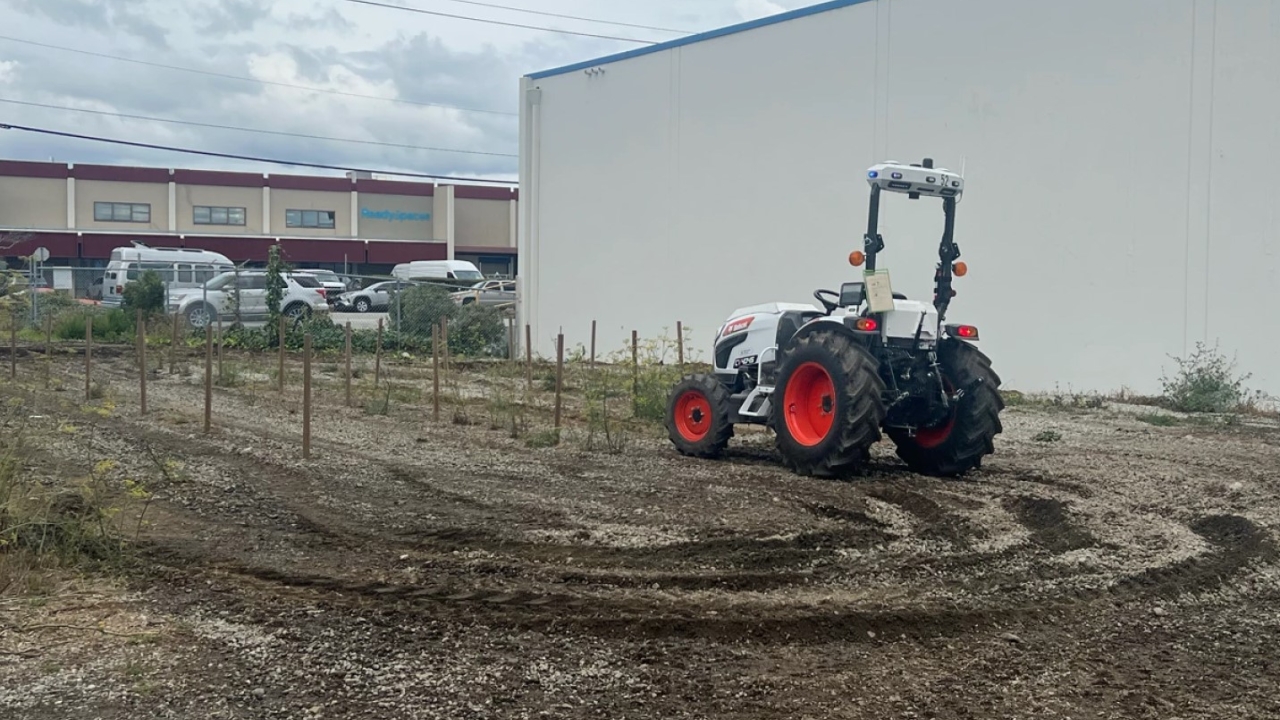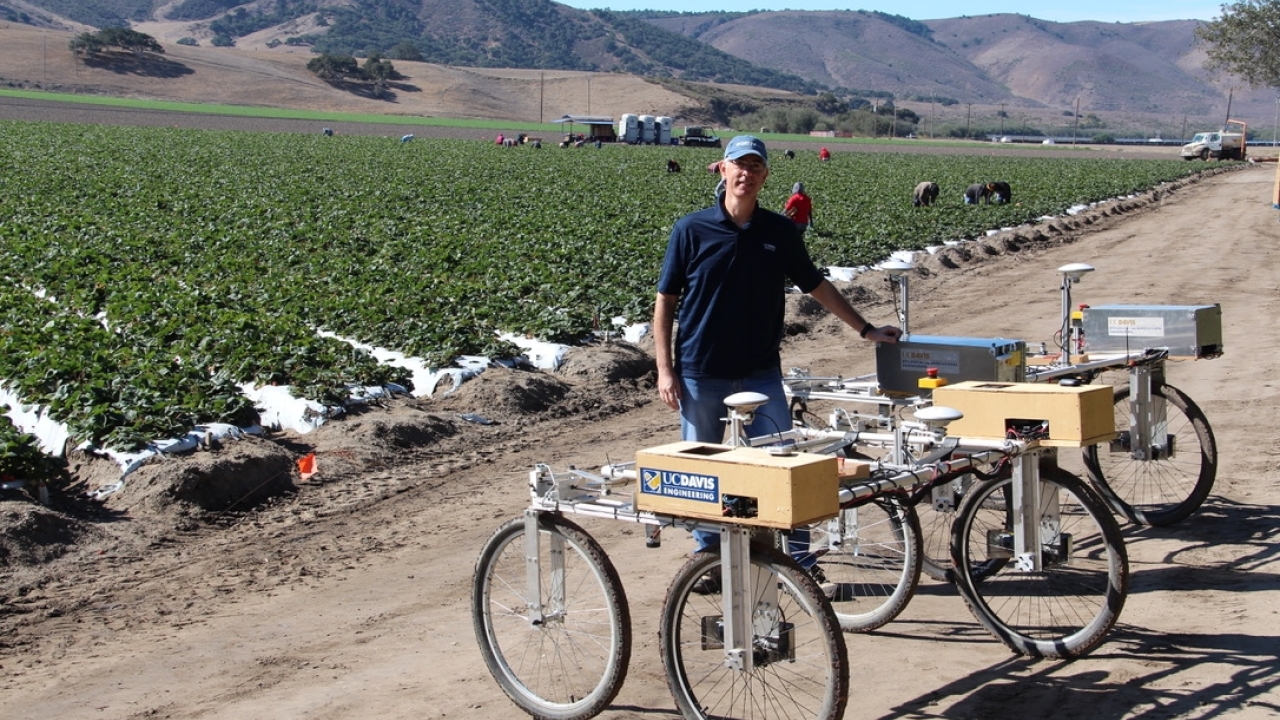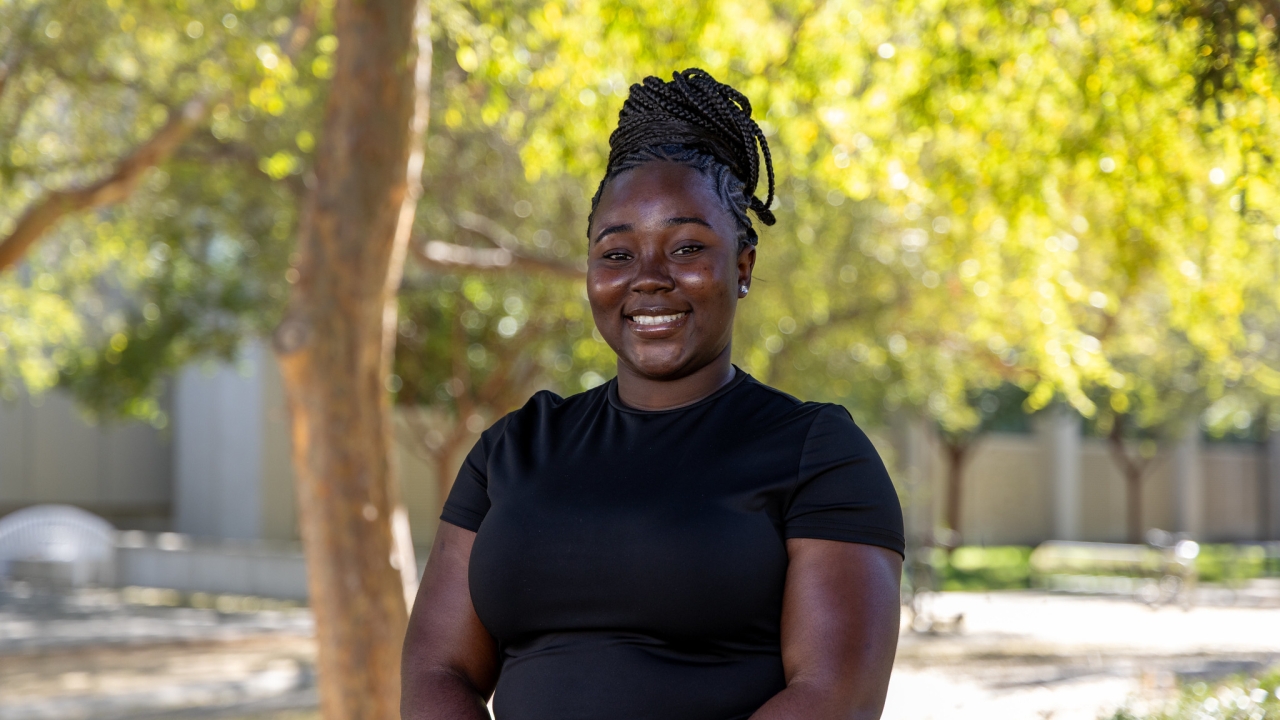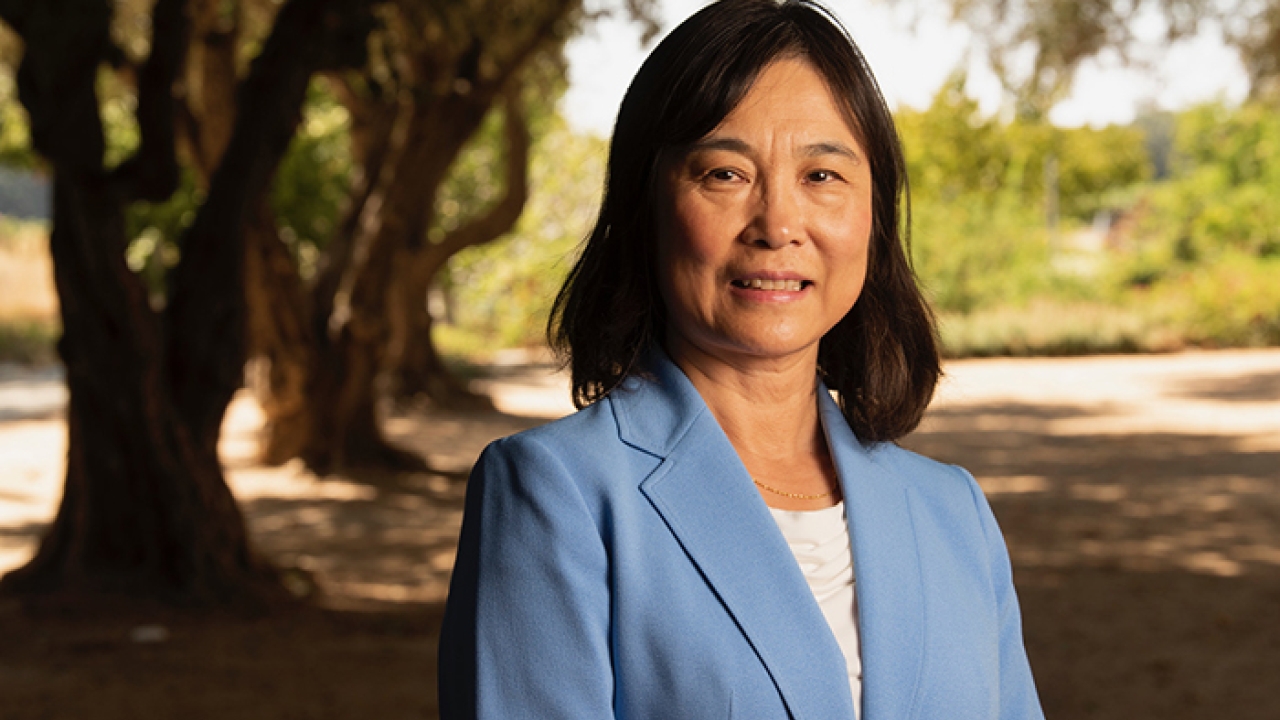
UC Davis Professor Developing New Bioplastic Technology from Dairy Byproducts and Food Waste to Address Plastic Pollution
For decades, Ruihong Zhang, a professor in the Department of Biological and Agricultural Engineering, has been studying biological conversion of food waste to explore solutions that could address environmental challenges. Her recent research on biodegradable plastics using dairy byproducts may reduce the global level of plastic pollution.
In 2021, global plastic production was estimated at 390.7 million metric tons. While investigating the issue, Zhang found that only about 9% of plastics are recycled globally each year, with the rest ending up in landfill or incinerated. Additionally, each year 4.8 to 12.7 million tons of plastic enters the ocean. If no action is taken, global production of plastic is expected to triple by 2060.
Producing Biodegradable Plastics from Dairy Byproducts
Zhang considers the use of biodegradable plastics as part of the answer. She is developing an environmentally friendly technology that may reduce the harmful effects of plastic use in the world.
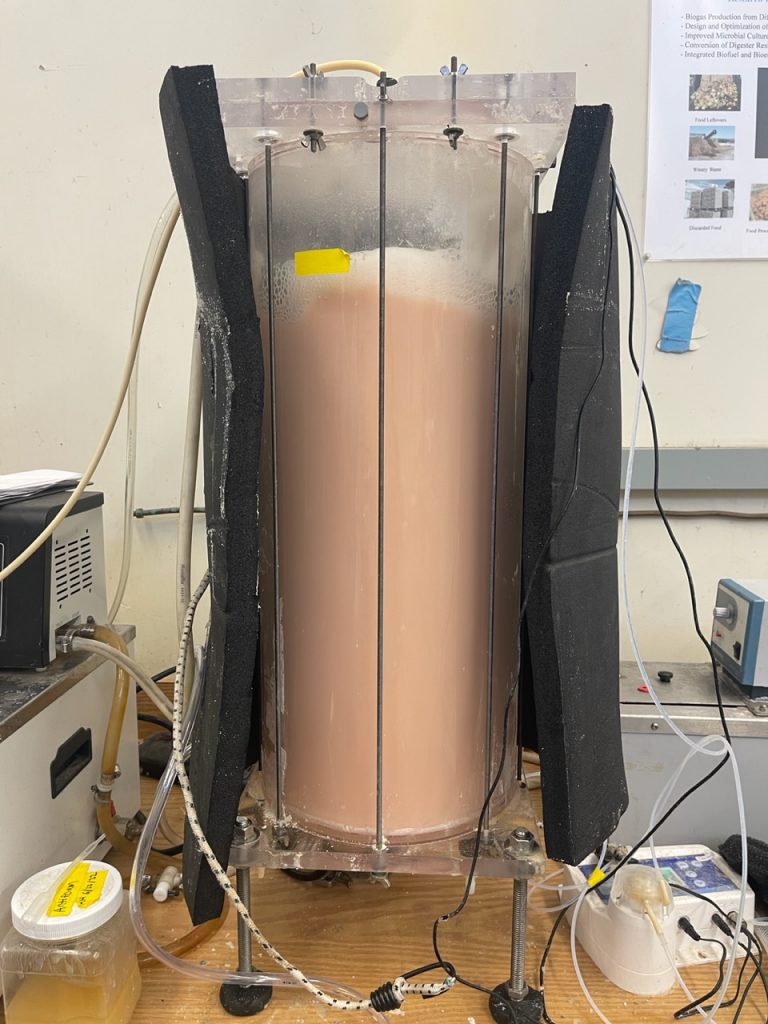
According to her, the challenge of using bio-derived and biodegradable plastics such as РНAs (polyhydroxyalkanoates) that can degrade in both land and ocean environments is the cost barrier. “There’s a real need for us to develop new technologies to reduce the cost of biodegradable plastics and expand their use,” said Zhang.
Zhang’s research has been focused on producing PHAs at a low-cost from dairy byproducts using microorganisms. Since the PHAs are produced biologically, they are biocompatible, biodegradable and non-toxic.
“These biodegradable plastics are already being used for a variety of applications, but the quantity is still small as they are expensive, and that’s where my research comes in so we can produce PHAs at a competitive cost through a new process and technology,” said Zhang.
To achieve that goal, Zhang and her students are exploring the use of cheese byproducts such as whey permeate and delactosed permeate that are used by the dairy industry as low-value animal feed or field spread. The new technology developed in her lab uses a microorganism known as Haloferax Mediterranei that grows in salty environments. The process involves first breaking down the lactose from dairy byproducts into the monosaccharides galactose and glucose using an enzyme called lactase. These monosaccharides are then added with the microbes, which they use as a substrate to expand and produce the PHA in their cells. Finally, the PHA is extracted from the cells using fresh water, and then dried to powder form. Zhang’s research also demonstrated the feasibility of PHA production from the fermented food waste.
Technology Support and Industry Collaboration
In 2021, Zhang received the support from the UC Davis Venture Catalyst Science Translation and Innovative Research (STAIR™) grant program. “The grant served as a much-needed springboard that allowed me to design the processes and system for commercial application,” Zhang said. “The grant also opened the path to develop collaborations with the dairy industry, that led to receiving funds from the Dairy Management Inc. and California Milk Advisory Board.”
Zhang has plans to scale up the production of PHA by taking the technology forward from bench scale to commercial application. “We are able to produce a real product and have already analyzed the measured properties, and also received positive feedback from the plastic industry,” she said. “These are really high quality PHA material that could have a number of applications.”
Media Resources
Media Contact
AJ Cheline, UC Davis Office of Research, 530-752-1101, acheline@ucdavis.edu



